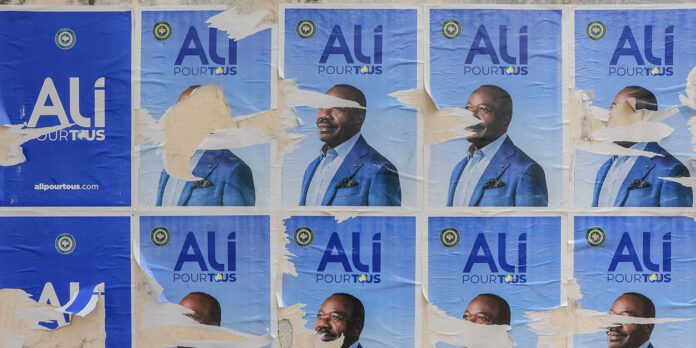Mali, Guinea, Sudan, Burkina Faso, Chad, Niger... and today, Gabon. Since 2020, part of the African continent has faced the return of the military to the political scene. The latest date is August 30 in Libreville, the end of the regime of President Ali Bongo Ondimba, in power since August 2009. This coup is, strictly speaking, more of a palace revolution than a political offer. Should we, however, give in to a determinism that encourages us to think that the African continent is afflicted by the curse of coups d'état?
Putsch is a reality as old as time. Just like the 18 Brumaire coup d'état led by Napoleon Bonaparte in 1799, with some exceptions, it is always a crisis, or the desynchronization of legal norms and principles of legitimacy, that leads to the coup d'état. Where counter powers are too weak to defender Institutions, an armed minority always manages to take over the State, especially in Africa, when it comes to countries that have barely completed sixty years of independence.
Chosen by the Gaullists
The international community is analyzing African crises in light of the dangers they can export beyond the continent's borders, at a time when the issue of migration is becoming an international political issue in European countries. Democracy, like a coup d'état, must be proven case by case. France under President Emmanuel Macron wishes, for example, to restore President Mohamed Bazoum, elected Head of the State of Niger, to his exclusive functions, who did not resign. Whereas, on the contrary, the overthrow of the three times elected Guinean president, Alpha Condé, did not benefit from the same concern for the return to constitutional order on the part of the French authorities. The same people who today share the coming to power in Gabon of General Brice Oligui Nguema as a technical solution for a regime whose main actor, due to his state of health, has become a blocking factor in Gabonese political life. A situation considered harmful to French economic interests in the long term, because Gabon has always maintained important relations with France.
It is the country chosen by the Gaullists at the beginning of the 1960s, to compensate for Algeria's loss in terms of oil resources. Didn't its first president, Leon Mba, dream of making Gabon a French department? Deposed by young progressive soldiers in 1964, he was quickly reinstated in his duties by French troops.
Thanks to a constitutional reform overseen by General de Gaulle's famous Monsieur Afrique, Jacques Foccart, Omar Bongo Ondimba was sworn in as vice president so that in 1967, after his death in Léon Mba, became president without passing universal suffrage. Father Bongo was at the head of Gabon for around forty years thanks to unexpected profits from oil, whose redistribution guaranteed social peace, and the presence of the French army.
The troubled game in Paris
A convalescent president marked by a solitary and adventurous governance, Bongo Júnior committed, among other sins, that of breaking with the “generosity” borrowed from his father, to use State resources for the benefit of his only clan, “impoverishing” himself in passing legitimate rights of the old regime left to absorb the ranks of the opposition.
The same people who did not hesitate to campaign against him in 2016 on the issue of his extra-Gabonese affiliation! We think of President Bédié inaugurating the concept of Ivoirité to eliminate his opponent Alassane Dramane Ouattara, who is now serving his third term after having legally adopted a new Constitution by referendum, without arousing major criticism from Paris, nor from many Africanists who talks about the “curse” of the third term in Africa.
Could this be one of the causes of the famous anti-French sentiment in Africa? Not understanding the error of “separating” the good from the bad coups, the good from the bad third terms, is a true heresy. Anti-French sentiment among elites is based, in part, on the idea that France tolerates certain authoritarian regimes in the name of stability and condemns others when personal relationships are execrable with the heads of state in power, or when economic interests are non-existent. Sometimes, for the average continental citizen, anti-French sentiment begins simply during a difficult obstacle course to obtain a residence visa in France.
We can no longer predict anything with certainty, except predict events that have already happened… as I said A humorist.

